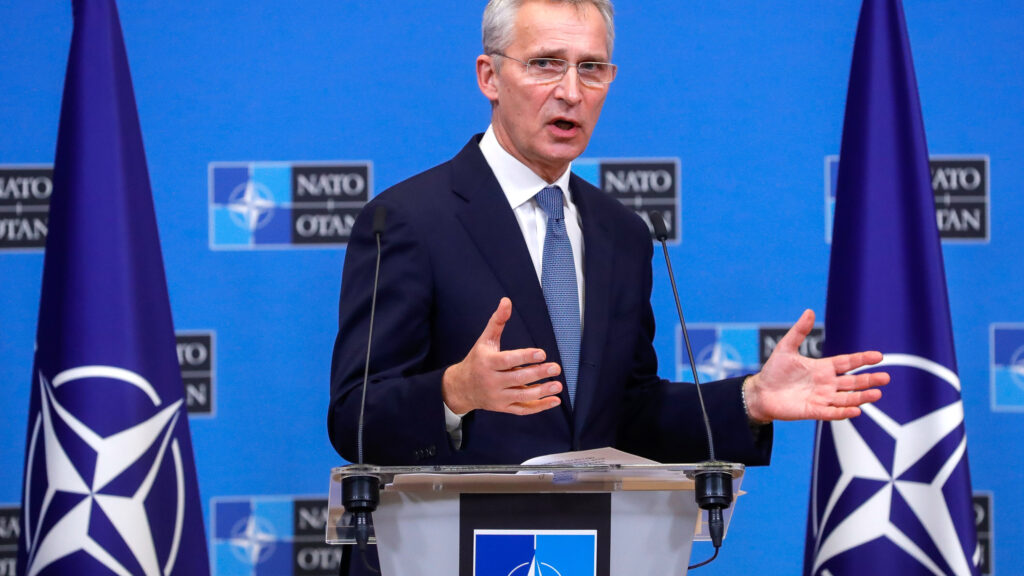NATO Secretary-General Jens Stoltenberg emphasized that NATO members should remain undeterred in their military support for Ukraine, despite recent “reckless” nuclear threats from Russian President Vladimir Putin. Stoltenberg’s comments came in response to Putin’s declaration that Russia could resort to nuclear weapons if struck by conventional missiles, warning that any attack on Russia, particularly one supported by a nuclear power, would be treated as a joint assault. This rhetoric adds to the already tense atmosphere as the U.S. and its allies deliberate whether to grant Ukraine permission to fire Western missiles deep into Russian territory, targeting sites integral to Russia’s military operations.
Stoltenberg, who will hand over NATO leadership to former Dutch Prime Minister Mark Rutte, remarked on the recurring pattern of Russia’s nuclear threats whenever NATO increases its military aid to Ukraine. He pointed out that these threats should not hinder NATO allies from providing the necessary support to Ukraine. “Every time we have stepped up our support with new types of weapons—battle tanks, long-range fires or F-16s—the Russians have tried to prevent us. They have not succeeded,” Stoltenberg stated. He further noted that NATO has not observed any changes in Russia’s nuclear posture that would necessitate a shift in NATO’s strategy.
The NATO chief warned that the greatest risk to the alliance would be a victory for Putin in Ukraine, as it would signal that aggression and threats could yield results, making NATO members more vulnerable. “In a war, there are no risk-free options,” he added, acknowledging the delicate balance of power and the high stakes involved in the conflict. While the U.S. has been cautious about allowing Ukraine to launch long-range strikes into Russia due to fears of escalating tensions, Stoltenberg suggested that such actions could play a critical role in the broader effort to support Ukraine and repel Russian aggression.
He also stressed that any negotiated resolution to the war must include robust security guarantees for Ukraine from Western powers, particularly the United States, to ensure that Russia would respect any boundaries established. “When some kind of line is agreed—be it the internationally recognized border or another ceasefire line—we have to be absolutely sure that the war ends there,” he cautioned. Stoltenberg’s remarks underscore a growing consensus among NATO allies that a clear and unified response is essential in the face of ongoing Russian aggression, and that demonstrating the high costs of continued conflict could potentially alter Putin’s calculations regarding Ukraine’s sovereignty.



